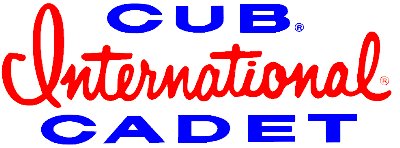This community needs YOUR help today!
With the ever-increasing fees of maintaining our vibrant community (servers, software, domains, email), we need help.
We need more Supporting Members today.
Please invest back into this community to help spread our love and knowledge of all aspects of IH Cub Cadet and other garden tractors.
Why Join?
- Exclusive Access: Gain entry to private forums.
- Special Perks: Enjoy enhanced account features that enrich your experience, including the ability to disable ads.
- Free Gifts: Sign up annually and receive exclusive IH Cub Cadet Tractor Forum decals directly to your door!
This is your chance to make a difference. Become a Supporting Member today:
Upgrade Now

















































